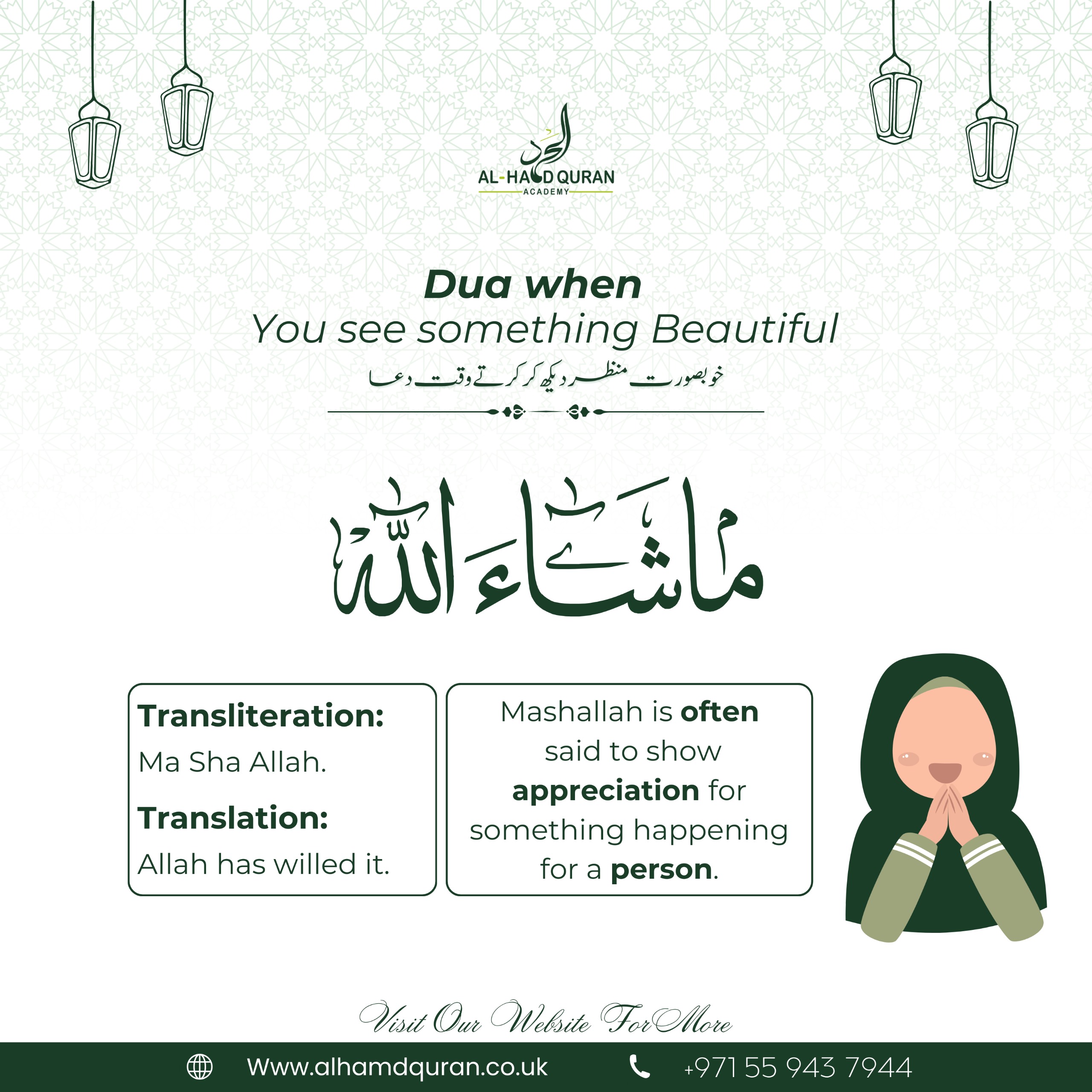

Reflecting gratitude and faith in moments of beauty
In Islam, our words carry meaning, intention, and power. Among the most meaningful expressions is Mashallah — a phrase rooted in gratitude and protection. Muslims are taught to say this whenever they encounter something admirable or beautiful, whether in people, nature, or success.
This declaration acknowledges that all goodness and beauty come from Allah, and it serves to express admiration while warding off the evil eye.
Allah mentions in Surah Al-Kahf (18:39):
Translation: “Why, when you entered your garden, did you not say, ‘What Allah has willed [has occurred]; there is no power except in Allah?’...”
It is essential to instill in children the practice of recognizing blessings. Encouraging them to say Mashallah when they see something lovely fosters gratitude, humility, and Islamic etiquette from a young age.
Examples of when saying Mashallah is appropriate:
The Prophet Muhammad ﷺ said:
In every beautiful moment, saying Mashallah reminds us of Allah’s will and grace. It protects from envy, promotes humility, and expresses gratitude. Whether you're admiring your child’s growth, nature’s wonders, or someone’s achievement, let your heart remember to say Mashallah.
TIn Islam, expressing gratitude and recognizing Allah’s will when witnessing something beautiful is part of our daily spiritual etiquette. One of the most common and meaningful phrases Muslims use in such moments is "Mashallah". This beautiful dua is not only a way to appreciate blessings but also a powerful protection against the evil eye — or Nazar.
In Islam, “Mashallah” (ما شاء الله) means “What Allah has willed has happened.” It is used to express admiration, gratitude, and recognition that all good things come from the will of Allah. Muslims say it to acknowledge beauty, success, or blessings while attributing them to divine will.
Muslims say Mashallah to appreciate beauty or success while protecting the person or thing from the evil eye (Ayn). It reflects humility and gratitude, recognizing that every blessing is granted by Allah’s will and not merely human effort.
Yes, saying Mashallah is considered a short and powerful dua in Islam. It serves as a protective phrase and a reminder of Allah’s control over everything. It’s not a request like some supplications, but rather an acknowledgment of divine will and protection.
Yes, you can say Mashallah when admiring anything — whether it’s a non-Muslim, non-living thing, or natural scenery. The phrase praises Allah’s creation in all forms, regardless of religion or form. It’s a universal expression of wonder and respect.
Where Faith and Knowledge Grow.
Connect With Us